Everything You Need To Know About Pregnancy Beauty
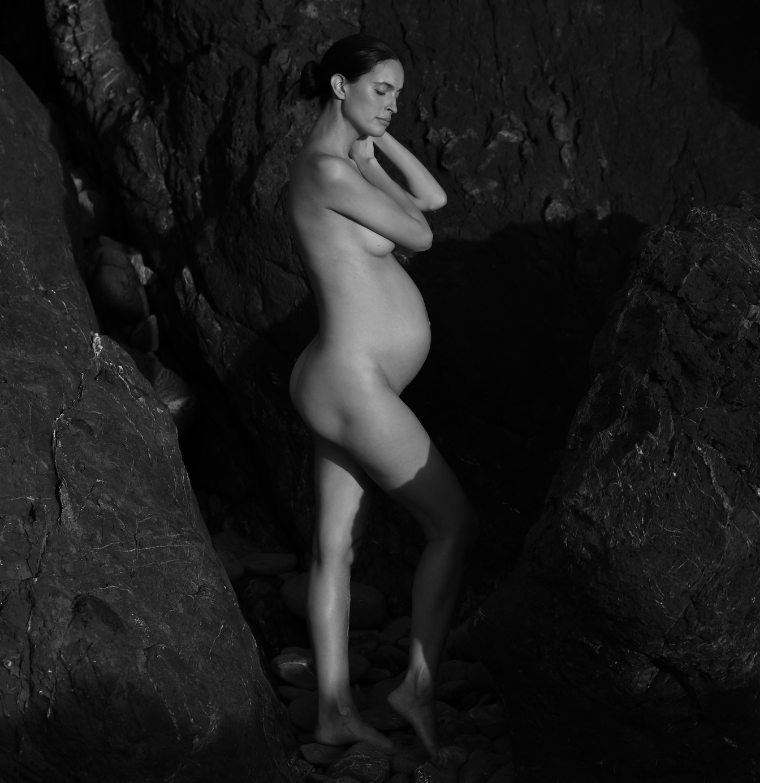
No, you don’t need to give up beauty for nine months… you just need a few baby tweaks.
Pregnancy is many things: a wondrous feat of nature, an incredible ode to the female body, an almost comically magical time of skin-stretching and out of control cleavage and thinking you couldn’t possibly get any bigger… but next minute, you have no ankles. Magical.
But one thing it’s not is a fun beauty time. Same goes for breastfeeding. Aside from the melasma, Sahara-esque dryness, hormonal acne and postpartum bum fluff, there’s a whole lot of confusion around what you can and can’t use. Hell, I am pregnant and I’m still confused (that could be pregnancy brain, though). So I brought in the big guns: Dr Michele Squire, PhD scientist, science educator and founder of QR8, and Tegan Natoli, co-founder of Bump Day Spa, to help clear up all those pregnancy and breastfeeding skin questions.

The Good, The Bad, The Hormones
The hormones. Oh man, the hormones! It’s like a highly emotional demon has taken over your soul, forcing you to cry because you had to wait too long for coffee/it was too hot/you realised that you actually wanted tea. And those same crazytown hormones are also responsible for some epic changes in your skin, hair, nails, gums and even sweat glands… because, as it happens, it takes quite a lot to grow (and feed) a human.
Cute Pregnancy And Post-Partum Skin Conditions (That Are Actually Total Jerks)
Melasma:
Pigmentation, particularly melasma, occurs in up to 75 per cent of pregnant women, usually around the cheeks, forehead, nose and upper lip. “It’s a result of the pigment-producing cells in your skin (‘melanocytes’) over-producing pigment, which is then deposited in cells throughout the epidermis and dermis,” says Dr Squire.
Hormones generally trigger it, though the sun will exacerbate it. For a lot of women it fades when the hormones settle (six to 12 months postpartum), but around a third aren’t so lucky. It’s not treatable during pregnancy, but you can minimise the damage with a strict sun protection routine, and avoiding products that may trigger inflammation/irritation.
Acne:
Then are the other kinds of spots: the pimply kind. Tegan says, “Acne can be caused by an increase of the hormone called androgens which can create more oily skin, causing pores and breakouts.” Essentially, we start producing more oil, which feeds acne-producing bacteria and hey presto, zits! As for treatment, Dr Squire says it’s always best to check with your doctor before treating acne during pregnancy, “especially if you’re using prescription oral or topical acne medications or antibiotics as some of these are not safe during pregnancy”.
Switch It Up
You don’t have to go without a beauty routine for nine months. Try these expert-approved safe switches instead:
Retinol >> Low-strength alpha-hydroxy acids, vitamin C and niacinamide all help to plump skin.
Chemical exfoliant >> Try low-strength alpha- and beta-hydroxy acids or naturally derived lactic acid.
Spot treatment >> Pimple patches
are a great alternative here.
Collagen supplement >> You can use these! Oral collagen supplements are also safe in pregnancy (Dr Squire recommends Vida Glow Marine Collagen).
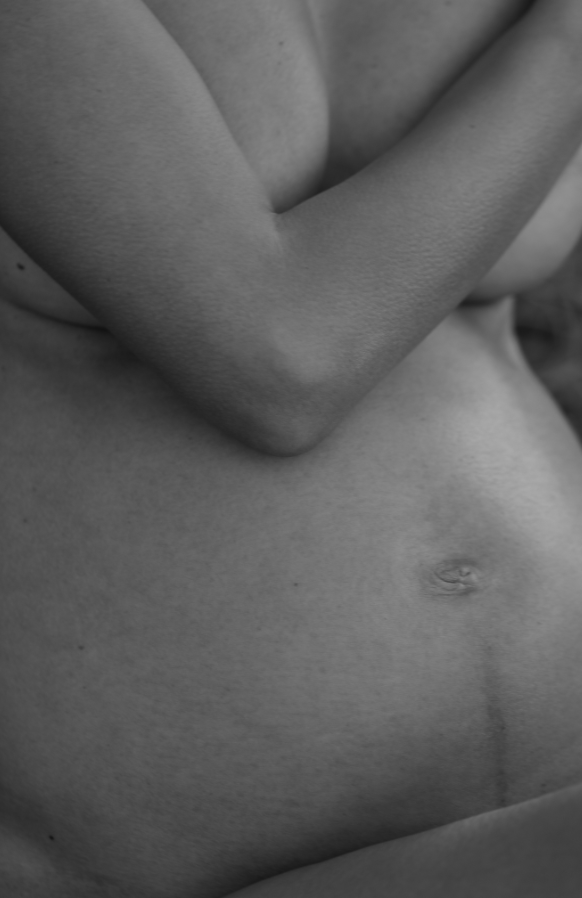
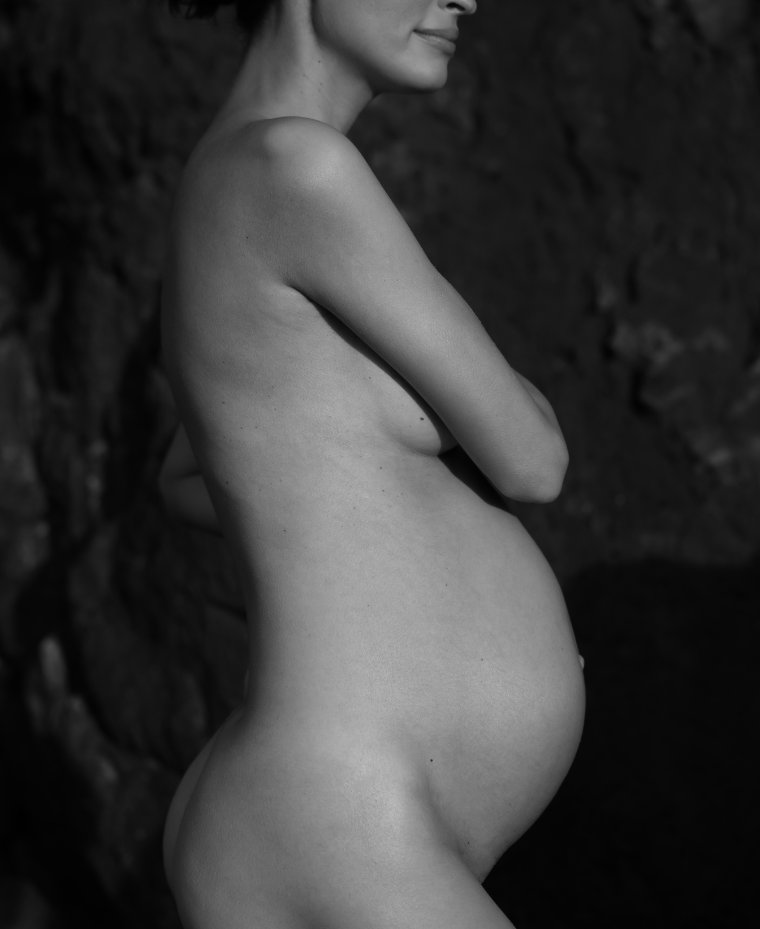
Photography: Isabell Sasse / H&MU: Candice September / Model: Kieta Van Ewyk
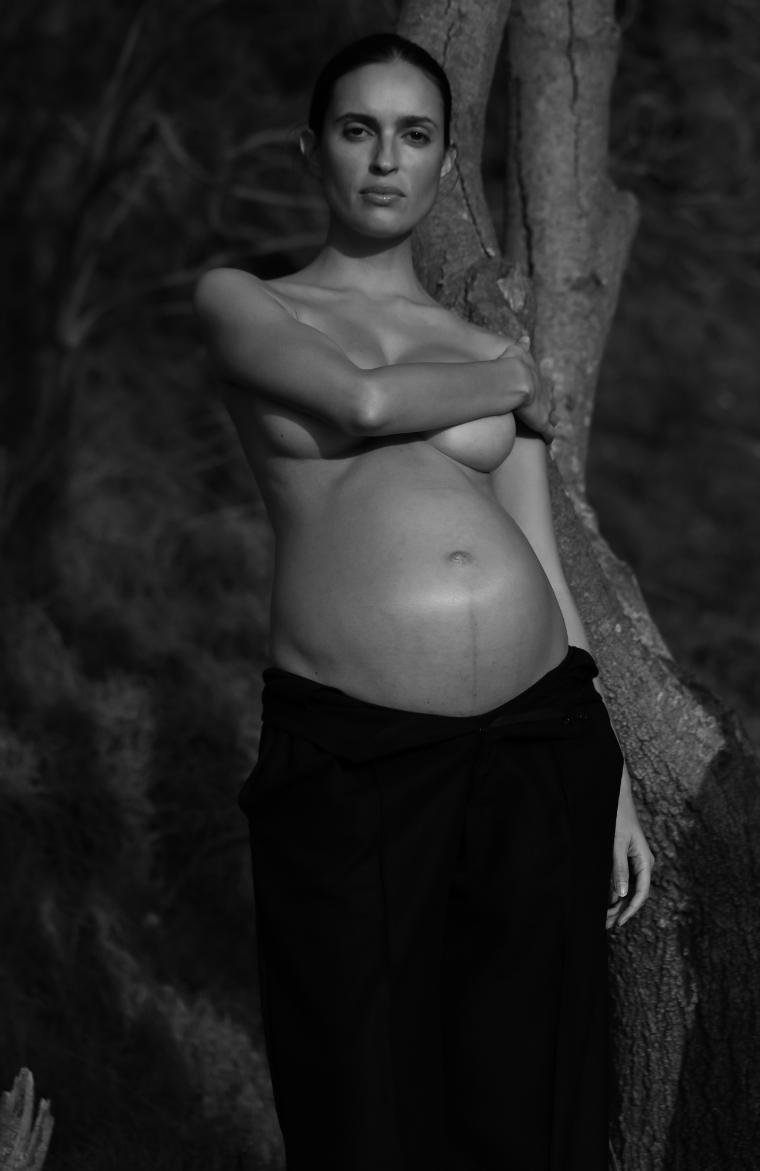
The Bump Beauty Guide
Have a poke around the internet and you’ll see just how much information there is out there about what is and isn’t safe during pregnancy. It’s hard to know what to believe, and what is hyperbole. Like, is it really safer to go ‘natural’ with products?
Dr Squires weighs in on this: “If ‘natural’ fits with your personal philosophy then that’s one thing, but don’t allow yourself to be greenwashed into believing that ‘natural’ somehow indicates safety (or efficacy). The best beauty products are those that are led by evidence, from reputable companies with an infrastructure that allows for rigorous quality and safety checks, and work for your skin, at a price you can afford.”
The problem with a lot of ingredients is that there simply hasn’t been enough research on them or their potential effects through pregnancy, because research needs test groups, and – surprise! – there aren’t too many people volunteering to play guinea pig during their pregnancy.
Dr Squire also says to avoid high-strength salicylic acid (more than two per cent) and high-strength alpha-hydroxy acids as well as wrinkle relaxers, injectable fillers, IPL/BBL and most lasers, high-strength chemical peels and invasive skin procedures like dermaplaning, mesotherapy, microdermabrasion and microneedling. Tegan adds, “Just because products are natural or organic doesn’t mean they’re safe. Some natural products such as particular essential oils should be avoided throughout certain stages of pregnancy due to their potency.”
So, what can you use? The trick is to keep it simple. Dr Squire says, “Your skin goes through so many changes throughout pregnancy, this isn’t the time to be experimenting with new products.” Instead, she suggests sticking to a ‘maintain and protect’ routine focusing on sunscreen and antioxidants for protection and gentle moisturisers and masks for hydration. It’s also a good idea to stay clear of anything that may aggravate pigmentation like products with heavy fragrance and dermarollers.
Which leads us to fragrance. There is a lot of talk that regular fragrance is harmful in pregnancy/postpartum. This is centered on a group of chemicals called phthalates, which some studies have shown may mimic hormones. “One phthalate in particular (diethyl phthalate or DEP) is still used in fragrances, whilst many others have been banned out of an abundance of caution rather than hard evidence,” says Dr Squire. However, she also adds “multiple studies have failed to establish a health risk to humans from the use of DEP-containing fragranced products when applied at normal usage levels.”
Essentially, there is no quality, science-backed evidence that it’s harmful to you or your baby, but if you are concerned, opt for a clean (phthalate-free) option instead. It’s worth noting that DEP is used in many fragranced products (deodorant, body wash, body lotion, hand soaps, just to name a few), so if you opt to go ‘clean’ you’ll need to rethink these also. The bottom line? Pregnancy is not a beauty prison. You can still get that glow – even if the natural preggo one eludes you.
The Good, The Bad, The Hormones
The hormones. Oh man, the hormones! It’s like a highly emotional demon has taken over your soul, forcing you to cry because you had to wait too long for coffee/it was too hot/you realised that you actually wanted tea. And those same crazytown hormones are also responsible for some epic changes in your skin, hair, nails, gums and even sweat glands… because, as it happens, it takes quite a lot to grow (and feed) a human.

Photography: Isabell Sasse / H&MU: Candice September / Model: Kieta Van Ewyk
Cute Pregnancy And Post-Partum Skin Conditions (That Are Actually Total Jerks)
Melasma:
Pigmentation, particularly melasma, occurs in up to 75 per cent of pregnant women, usually around the cheeks, forehead, nose and upper lip. “It’s a result of the pigment-producing cells in your skin (‘melanocytes’) over-producing pigment, which is then deposited in cells throughout the epidermis and dermis,” says Dr Squire.
Hormones generally trigger it, though the sun will exacerbate it. For a lot of women it fades when the hormones settle (six to 12 months postpartum), but around a third aren’t so lucky. It’s not treatable during pregnancy, but you can minimise the damage with a strict sun protection routine, and avoiding products that may trigger inflammation/irritation.
Acne:
Then are the other kinds of spots: the pimply kind. Tegan says, “Acne can be caused by an increase of the hormone called androgens which can create more oily skin, causing pores and breakouts.” Essentially, we start producing more oil, which feeds acne-producing bacteria and hey presto, zits! As for treatment, Dr Squire says it’s always best to check with your doctor before treating acne during pregnancy, “especially if you’re using prescription oral or topical acne medications or antibiotics as some of these are not safe during pregnancy”.

Switch It Up
You don’t have to go without a beauty routine for nine months. Try these expert-approved safe switches instead:
Retinol >> Low-strength alpha-hydroxy acids, vitamin C and niacinamide all help to plump skin.
Chemical exfoliant >> Try low-strength alpha- and beta-hydroxy acids or naturally derived lactic acid.
Spot treatment >> Pimple patches
are a great alternative here.
Collagen supplement >> You can use these! Oral collagen supplements are also safe in pregnancy (Dr Squire recommends Vida Glow Marine Collagen).

The Bump Beauty Guide
Have a poke around the internet and you’ll see just how much information there is out there about what is and isn’t safe during pregnancy. It’s hard to know what to believe, and what is hyperbole. Like, is it really safer to go ‘natural’ with products?
Dr Squires weighs in on this: “If ‘natural’ fits with your personal philosophy then that’s one thing, but don’t allow yourself to be greenwashed into believing that ‘natural’ somehow indicates safety (or efficacy). The best beauty products are those that are led by evidence, from reputable companies with an infrastructure that allows for rigorous quality and safety checks, and work for your skin, at a price you can afford.”
The problem with a lot of ingredients is that there simply hasn’t been enough research on them or their potential effects through pregnancy, because research needs test groups, and – surprise! – there aren’t too many people volunteering to play guinea pig during their pregnancy.
Dr Squire also says to avoid high-strength salicylic acid (more than two per cent) and high-strength alpha-hydroxy acids as well as wrinkle relaxers, injectable fillers, IPL/BBL and most lasers, high-strength chemical peels and invasive skin procedures like dermaplaning, mesotherapy, microdermabrasion and microneedling. Tegan adds, “Just because products are natural or organic doesn’t mean they’re safe. Some natural products such as particular essential oils should be avoided throughout certain stages of pregnancy due to their potency.”
So, what can you use? The trick is to keep it simple. Dr Squire says, “Your skin goes through so many changes throughout pregnancy, this isn’t the time to be experimenting with new products.” Instead, she suggests sticking to a ‘maintain and protect’ routine focusing on sunscreen and antioxidants for protection and gentle moisturisers and masks for hydration. It’s also a good idea to stay clear of anything that may aggravate pigmentation like products with heavy fragrance and dermarollers.
Which leads us to fragrance. There is a lot of talk that regular fragrance is harmful in pregnancy/postpartum. This is centered on a group of chemicals called phthalates, which some studies have shown may mimic hormones. “One phthalate in particular (diethyl phthalate or DEP) is still used in fragrances, whilst many others have been banned out of an abundance of caution rather than hard evidence,” says Dr Squire. However, she also adds “multiple studies have failed to establish a health risk to humans from the use of DEP-containing fragranced products when applied at normal usage levels.”
Essentially, there is no quality, science-backed evidence that it’s harmful to you or your baby, but if you are concerned, opt for a clean (phthalate-free) option instead. It’s worth noting that DEP is used in many fragranced products (deodorant, body wash, body lotion, hand soaps, just to name a few), so if you opt to go ‘clean’ you’ll need to rethink these also. The bottom line? Pregnancy is not a beauty prison. You can still get that glow – even if the natural preggo one eludes you.


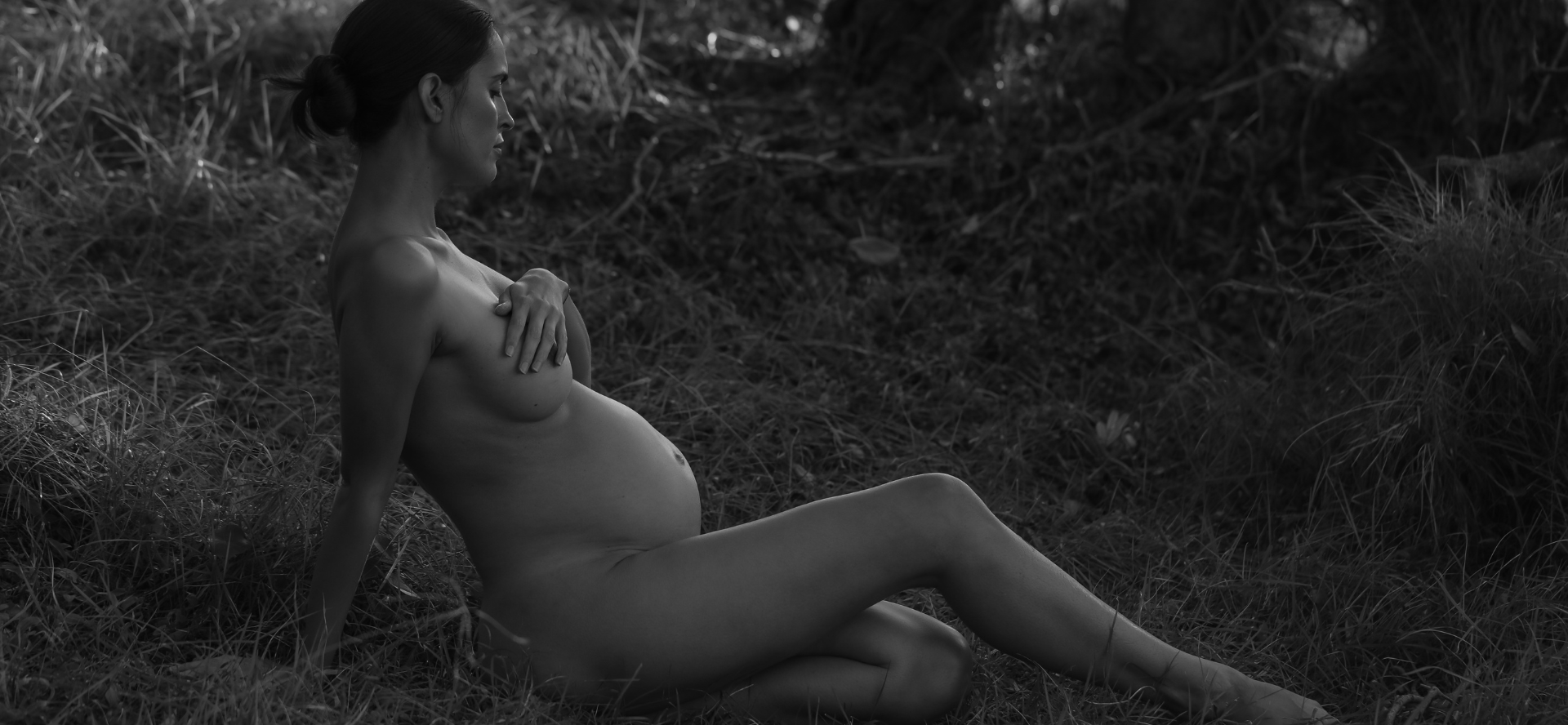
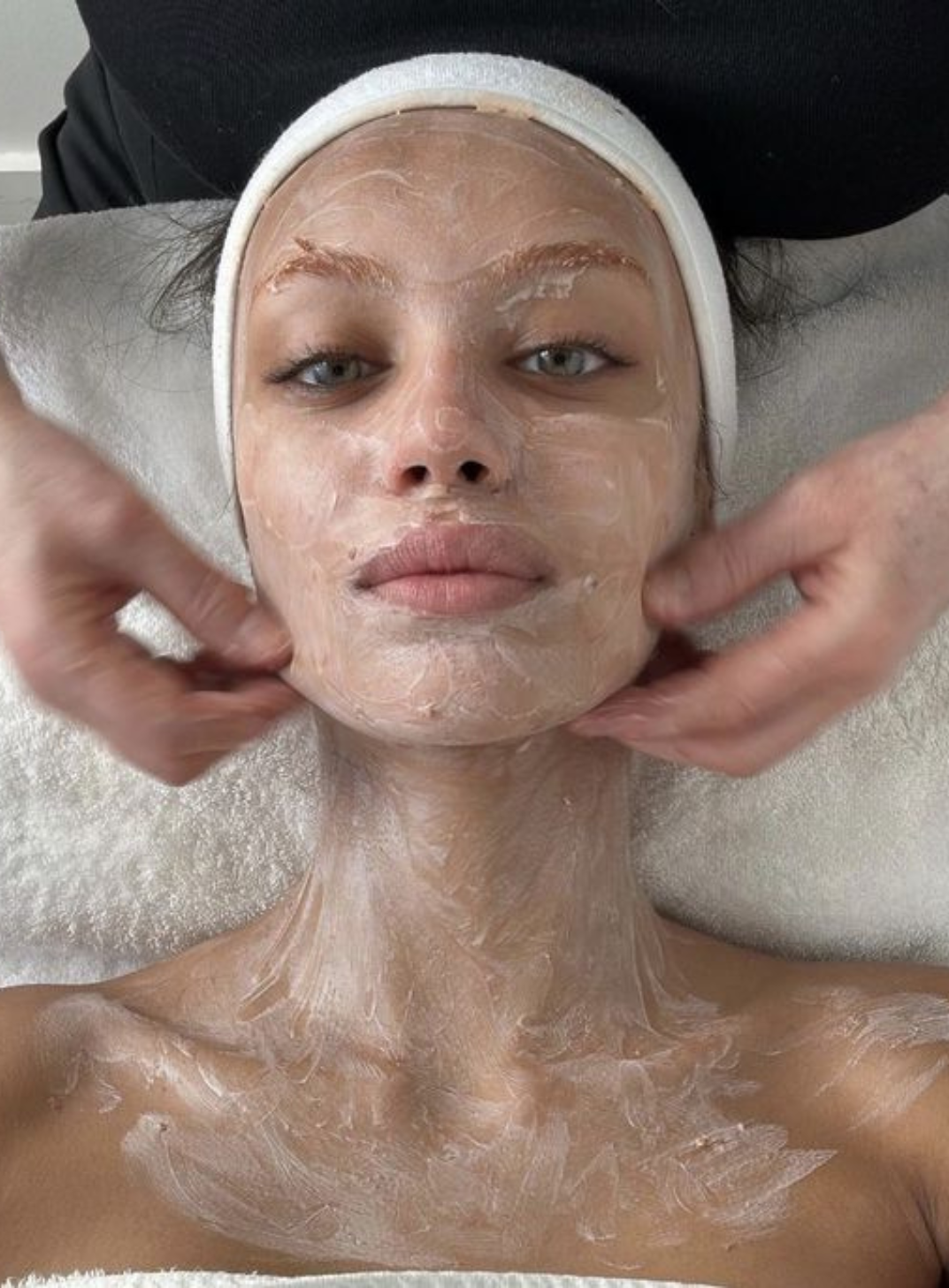

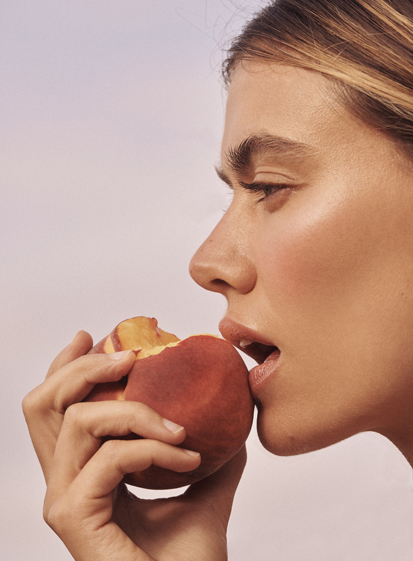
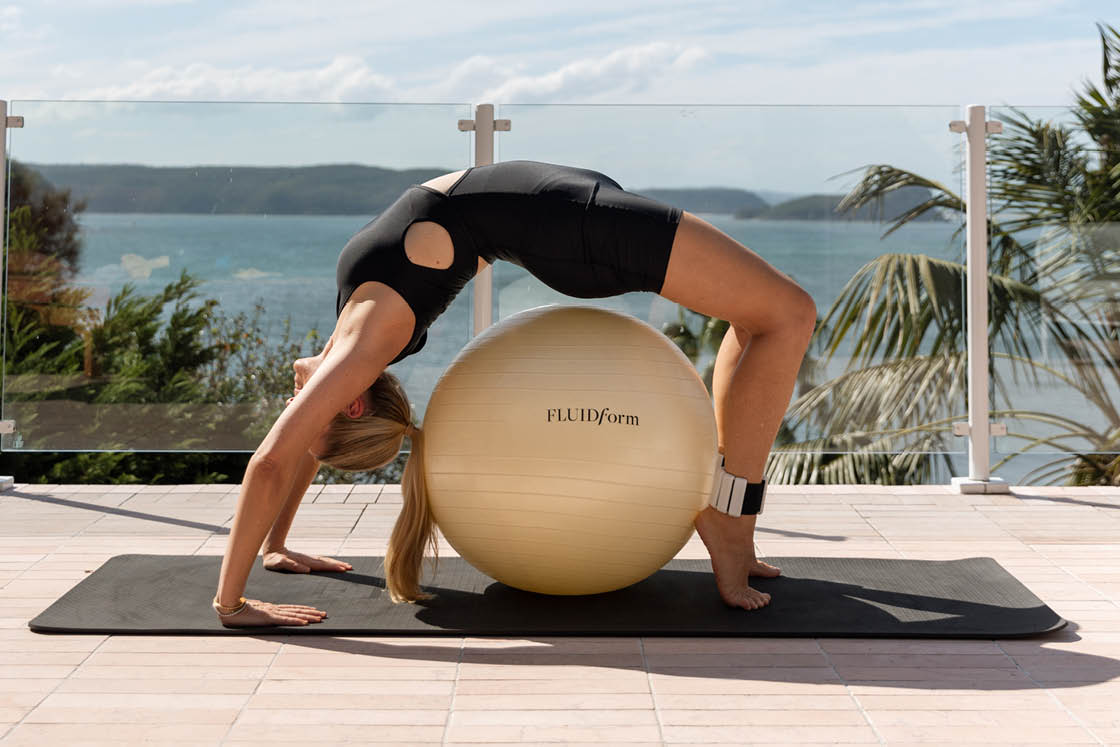
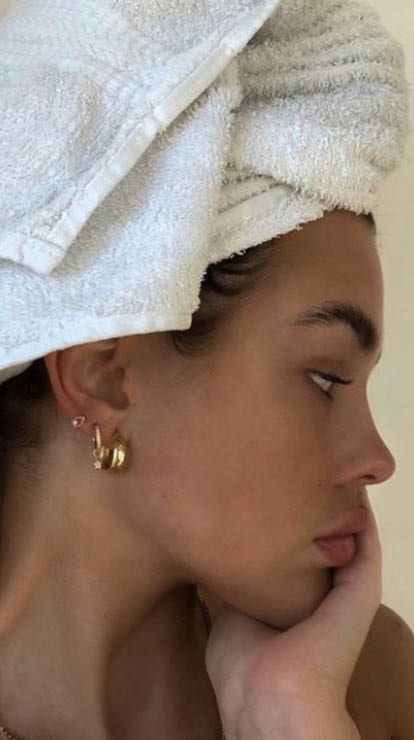
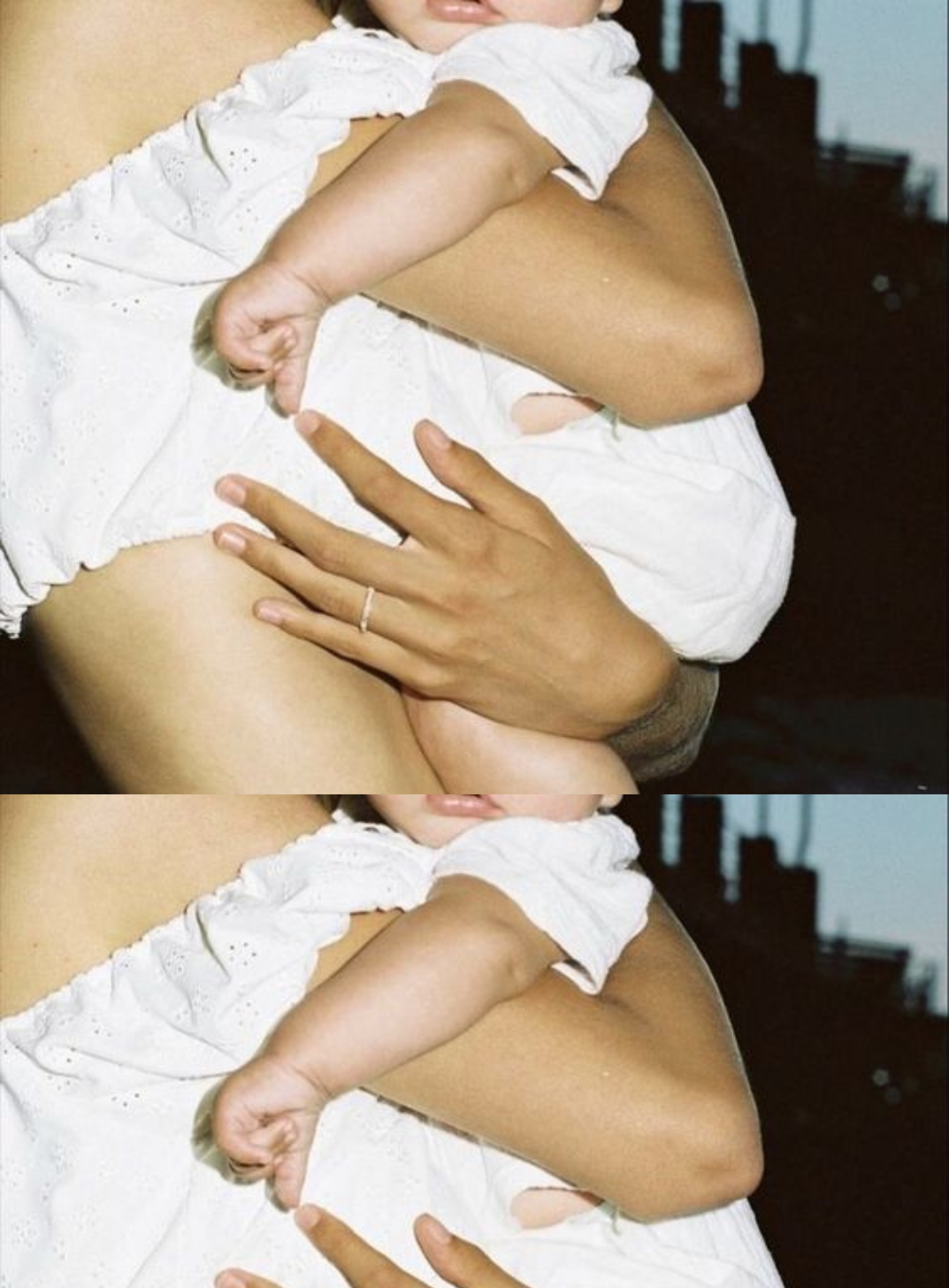
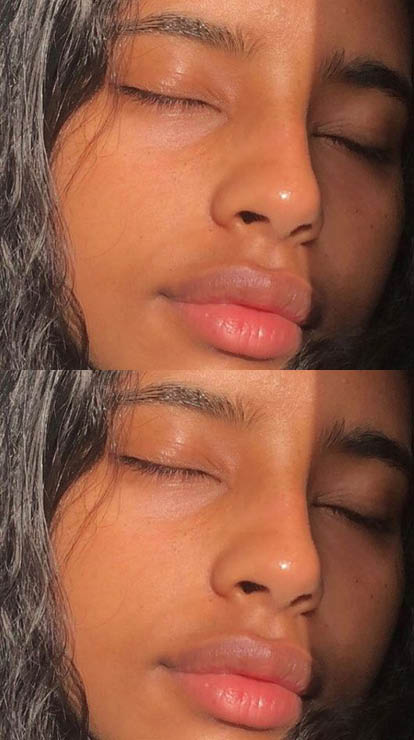
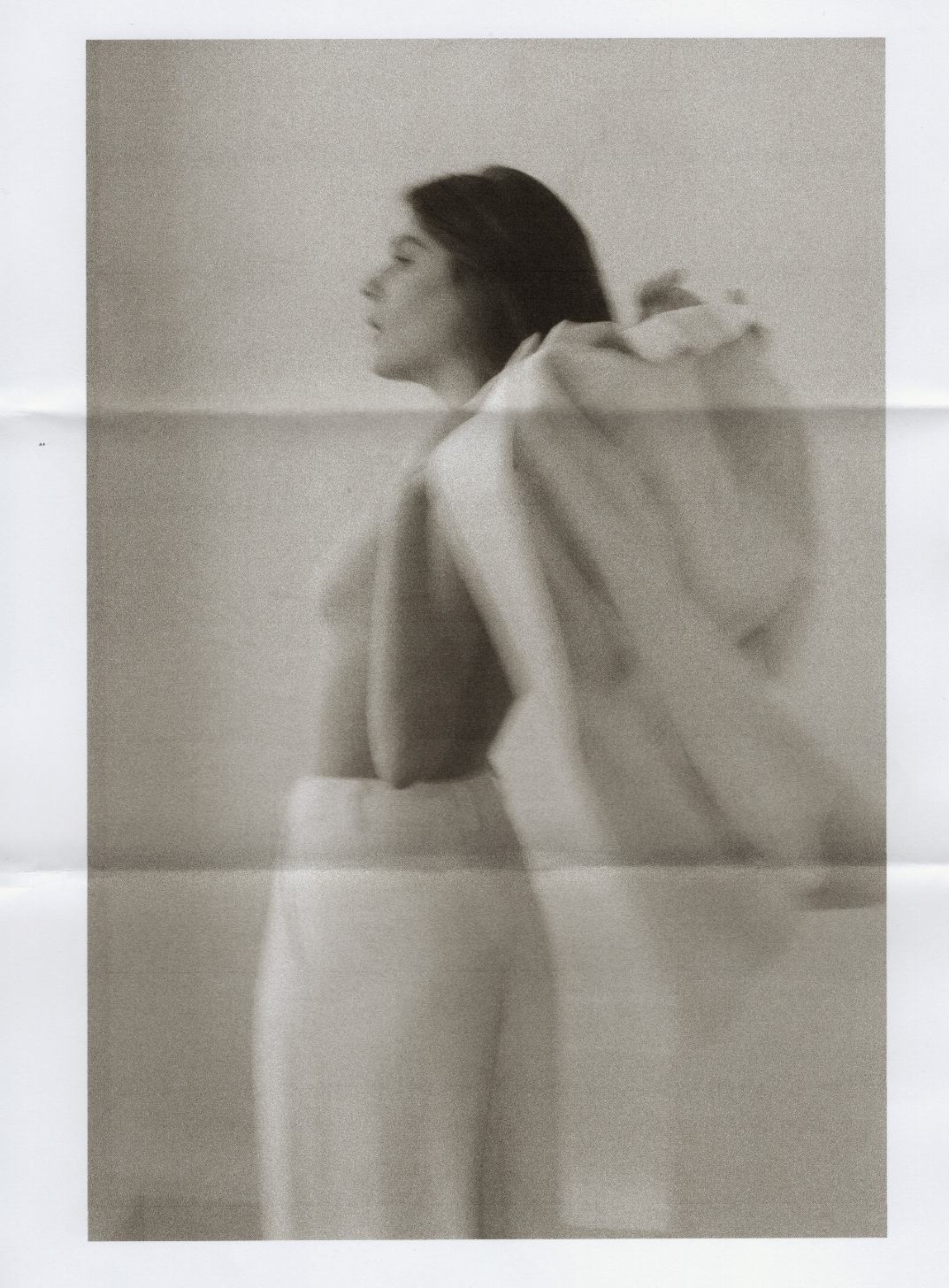
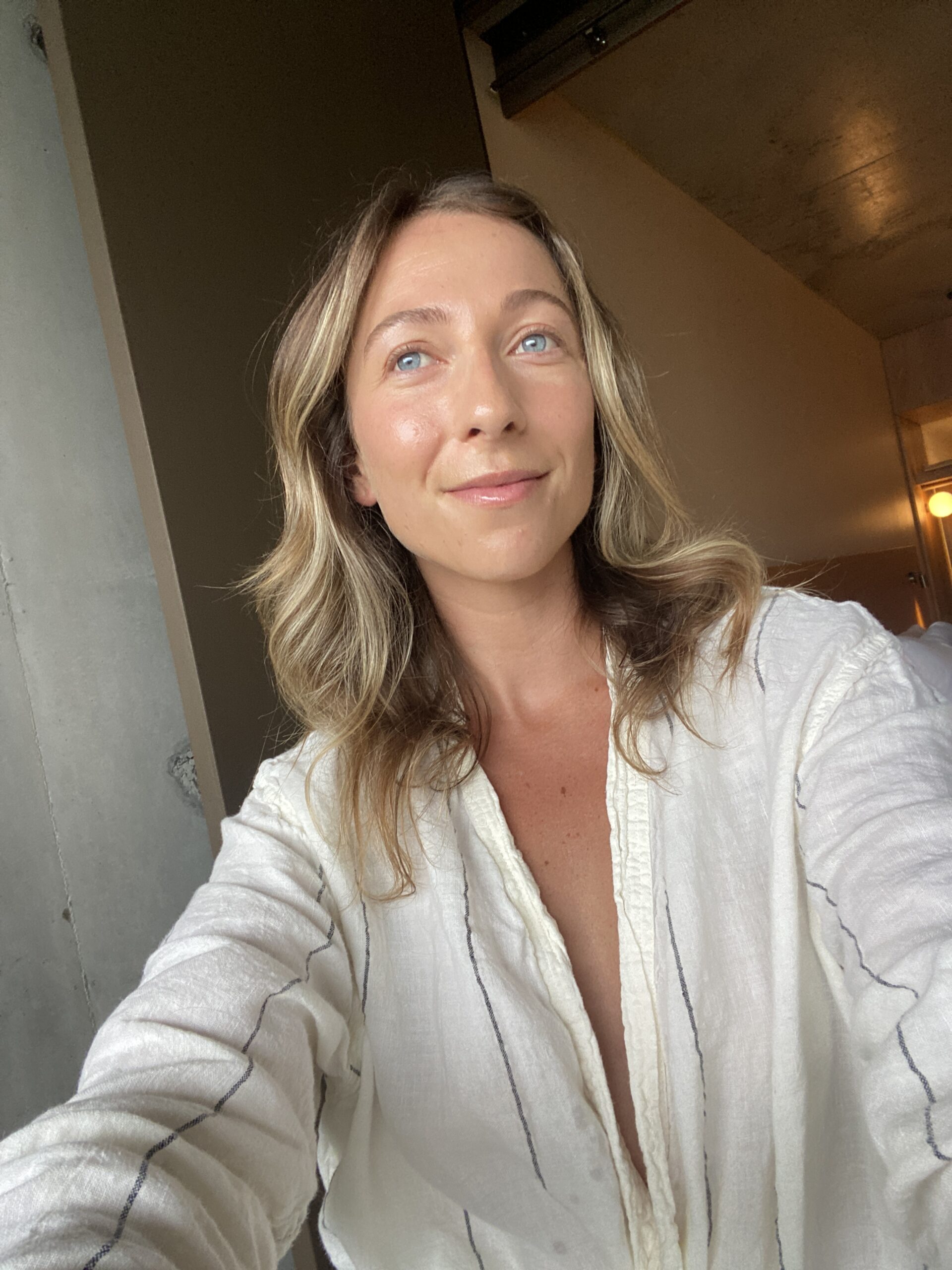
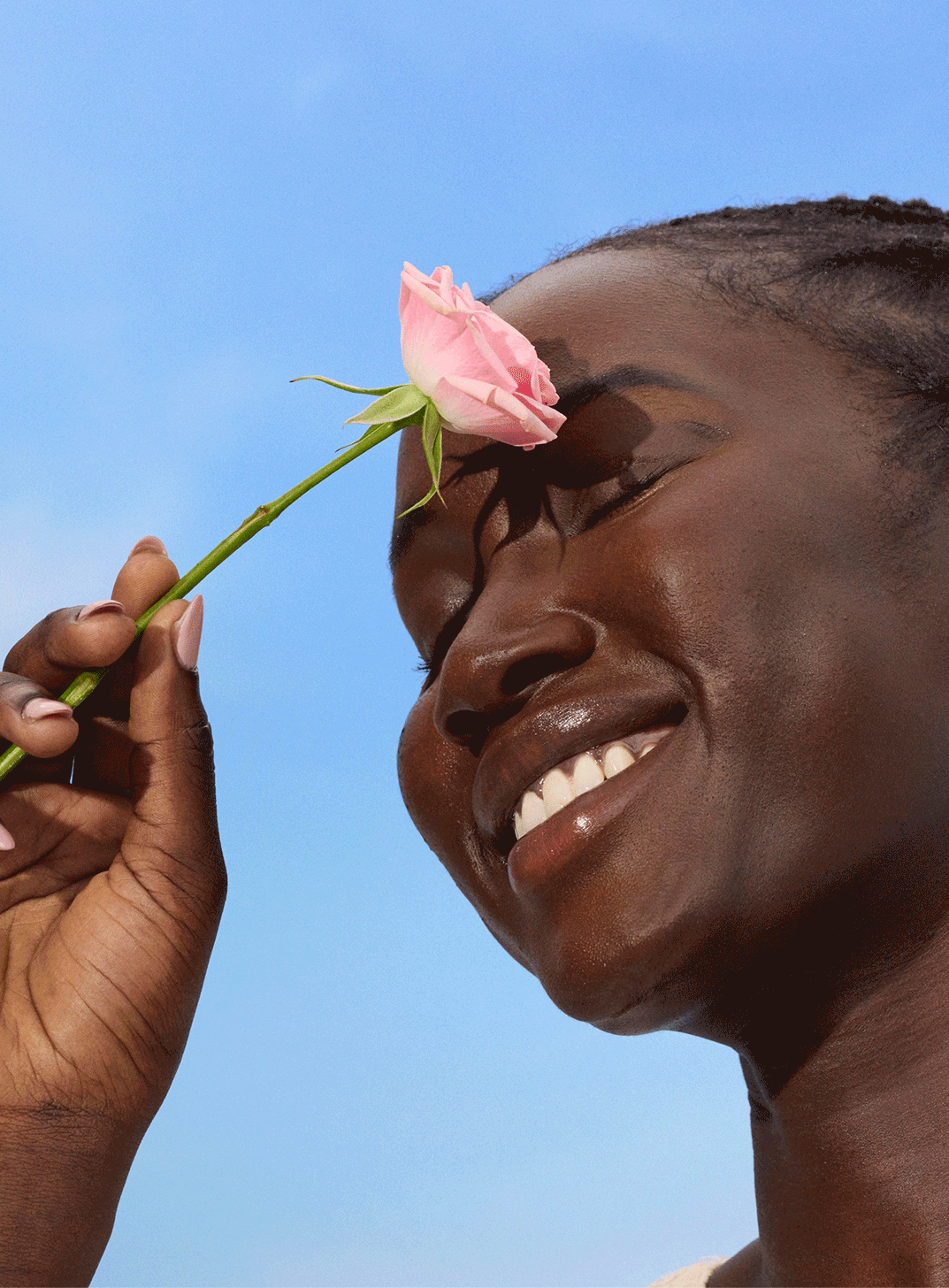
Comments